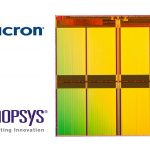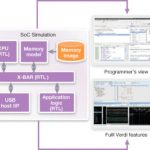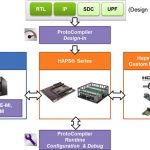You are currently viewing SemiWiki as a guest which gives you limited access to the site. To view blog comments and experience other SemiWiki features you must be a registered member. Registration is fast, simple, and absolutely free so please,
join our community today!
The ARC EM family is the low-power, embedded and low footprint processor part of the larger ARC processor. To target the ultra low-power markets like wearable and IoT, Synopsys has added DSP capabilities to EM5D and EM7D. To be specific, these cores are optimized for ultra low-power control and DSP, thanks to:
…
Read More
I often feel that product marketing can simultaneously be an underrated and overrated function. More often than not, it suggests product goals, pricing, and positioning. Then the marketing department must defend those positions to both engineering and sales. However, both the engineering and sales departments can claim expertise… Read More
Tuesday morning at DAC I enjoyed a free breakfast courtesy of Synopsysand GLOBALFOUNDRIESwhere I learned more about the emerging market of IoT, and what it means to semiconductor, EDA and IP vendors. Panelists included: Semico Research, HP, Synopsys, GLOBALFOUNDRIES and Broadcom. … Read More
Synopsyshosted an AMS Luncheon panel today at DACin the Westin Hotel and invited four customers to talk about their actual design challenges and experiences. I’ve typed up my notes from this event.… Read More
Accelerating Innovation—that has been at the heart of Synopsys’ commitment to its customers for more than 25 years. As a leader in EDA and semiconductor IP, Synopsys’ software, IP and services help engineers address their design, verification, system and manufacturing challenges and accelerate their innovations. Since 1986,… Read More
IDM companies like Micronuse SPICE circuit simulators during the design phase in order to predict timing, currents and power on their custom IC chip designs at the transistor level. A senior memory design engineer at Micron named Raed Sabbahtalked today at a webinarabout how the embedded solutions group uses the FineSimcircuit… Read More
Paul McLellan was on assignment in Hong Kong last week so I attended the Linley Mobile Conference and was not surprised Intel did not present. During the networking sessions I asked more than a dozen people why and the answers were pretty focused on “Intel still does not play well with others” and “Intel’s current mobile offerings… Read More
One of the big challenges with modern SoCs is that they have a complex software component as well as the hardware itself being complex. Some aspects of the hardware can be debugged independently of the software and vice versa, but often it is not immediately clear whether the source of a problem is hardware, software or some interaction… Read More
Every industry has famous thought leaders that can summarize where we’ve been and then paint a picture of where we’re headed towards in the future. Often they make statements that become industry expressions, like “Moore’s Law” or the “Internet of Things”. I think that if Synopsys… Read More
I recently published a post on LinkedIn titled “Sometimes, you gotta throw it all out” in reference to the innovation process and getting beyond good to better. A prime example has crossed my desk: the new ProtoCompiler software for Synopsys HAPS FPGA-based prototyping systems.
Last week, I spoke with Troy Scott, product marketing… Read More










